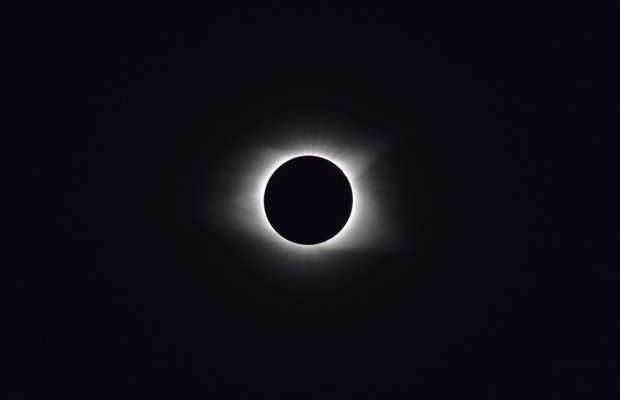Superhuman 'night' vision during the total eclipse? Research offers a biological explanation

If you were fortunate enough to witness the recent total solar eclipse in all its glory, you might have noticed something surprising.
It was dark as night, yet people and objects were easier to see than on a typical moonless night.
Scientists at The Ohio State University have discovered a possible biological explanation - the presence (or absence) of a protein in the retina known as a GABA receptor. GABA, short for gamma-aminobutyric acid, is a chemical messenger responsible for communication between cells, especially those in the brain.
The GABA receptor is in abundance on certain cells in the retina on sunny days, and enhances the ability to see details and edges of objects. At night, it disappears.
But that process is normally gradual. When the total eclipse took viewers from brightness to darkness in minutes, the GABA receptor would have still been present on those cells in their eyes, giving them super-sharp night vision for a brief time, said lead researcher Stuart Mangel, a professor of neuroscience at the Ohio State University College of Medicine.
The study, which was conducted in rabbits, also found that the neurotransmitter dopamine, which increases in the light and decreases in the dark, regulates whether the GABA receptor is working.
"It has been known for decades that there is a mechanism in the retina in the eye that helps us see small objects and detect edges on bright days, and that this mechanism gradually turns off when it is dark. However, what this mechanism is and how it is controlled has been a mystery," said Mangel, a member of Ohio State's Neuroscience Research Institute.
The research appears in the journal Current Biology.
"On bright days, dopamine levels are high and signaling is strong, enhancing the detection of spatial details and edges," Mangel said. "On moonless nights, however, dopamine levels are low and the GABA signal is minimal, decreasing our ability to see those details."
Mangel, who visited Tennessee for the Aug. 21 eclipse, said he and others experienced an unusual clarity of vision during the minutes when the moon shut out the sun's rays.
"During the total eclipse, it was as dark as it usually is at dusk. Several people I was with commented that they could see as well during totality as they could when it had been bright, and that their acuity was much better than it usually is when it is dark at dusk," he said.
He realized at the time that his research offers one explanation.
Normally, when you're outdoors, it takes hours for the background light to decrease from bright to dark as the Earth rotates on its axis. When it finally becomes dark at dusk, a person or animal's ability to see small details is much lower than during the middle of the day.
Visual performance needs change with the ambient light level, Mangel said. We need to see fine spatial details on bright days and to see large dim objects on moonless nights.
"Evolution has made trade-offs so that we can see well on bright days and on moonless nights," he said.
"My findings show that the change in background light triggers a process in the retina that normally takes hours. This process involves assembling and moving the GABA receptor protein to a specific site in the retina when it is bright, and disassembling the same protein and moving it away from the synapse as it becomes dark," Mangel said.
"The reason our acuity stayed high during the total eclipse is that there wasn't enough time for protein disassembly to take place."
More information: Antoine Chaffiol et al. Dopamine Regulation of GABA A Receptors Contributes to Light/Dark Modulation of the ON-Cone Bipolar Cell Receptive Field Surround in the Retina, Current Biology (2017). DOI: 10.1016/j.cub.2017.07.063
Journal information: Current Biology
Provided by The Ohio State University




















